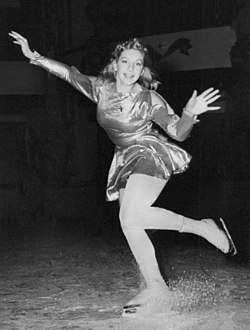2005 in the United Kingdom
| 2005 in the United Kingdom |
| Other years |
| 2003 | 2004 | 2005 | 2006 | 2007 |
| Constituent countries of the United Kingdom |
| England | Northern Ireland | Scotland | Wales |
| Popular culture |
Events from the year 2005 in the United Kingdom.
Incumbents
- Monarch – Elizabeth II
- Prime Minister – Tony Blair (Labour Party (UK))
- Parliament
Events
January
- 1 January
- New Year's celebrations all over the UK fall silent for two minutes as mark of respect for British memorial service for those who died the 2004 Indian Ocean tsunami in across the South and Southeast Asia.
- The Freedom of Information Act 2000, the Environmental Information Regulations 2004 and the main provisions of the Child Trust Funds Act 2004 (introducing a Child Trust Fund with a government contribution for children that were born after 1 September 2002) come into force.
- New Chip and PIN legislation comes into effect today. It makes retailers liable for fraudulent transactions if they have failed to sign up to the scheme.
- 2 January – Operation Garron, the U.K. military aid effort for the victims of the 2004 Indian Ocean earthquake and tsunami is launched.
- 5 January – Funeral of the Rt. Hon Sir Angus Ogilvy, husband of Princess Alexandra, The Hon Lady Ogilvy, takes place at St George's Chapel, Windsor Castle.
- 8 January
- The BBC broadcasts Jerry Springer - The Opera despite receiving at least 45,000 complaints.
- After a night of stormy weather, a ferry has run aground on Scotland's coast, with passengers remaining on board rather than evacuating in stormy weather. Extensive flooding has occurred in Carlisle as well as other locations in Britain and many homes are without power.
- 12 January – Britain's tallest self-supporting sculpture, the "B of the Bang", is unveiled in Manchester by Linford Christie.
- 13 January
- Pictures of Prince Harry wearing a Nazi military uniform at a private "fancy dress" party are published in the newspapers.[1]
- Sir Mark Thatcher is fined 3,000,000 Rand (approximately £265,000), and receives a four-year suspended jail sentence after pleading guilty to supplying equipment to mercenaries for an attempted coup in Equatorial Guinea.
- 15 January – Conservative MP Robert Jackson, MP for Wantage, defects to the Labour Party.
- 20 January – Carolyn Leckie, a Member of the Scottish Parliament, is jailed for seven days for non-payment of a fine arising from a protest at Faslane nuclear base.
- 22 January – 61,000 people attended the concert in humanitarian aid of 2004 Indian Ocean tsunami victims at the Millennium Stadium in Cardiff, which raised over £1,250,000.[2] Artists performing in the largest concert in Britain since Live Aid include Charlotte Church, Craig David, Goldie Lookin' Chain, Aled Jones, Badly Drawn Boy, Manic Street Preachers, Lulu, Eric Clapton, and Sting.
- 24 January – Hoaxer Christopher Pierson, who sent emails to relatives of innocent people missing in the 2004 Indian Ocean tsunami from an AOL account purporting to be from the Foreign Office and claiming to confirm that the relatives were dead, is jailed for six months.
- 26 January
- Closure of Ellington Colliery at Ellington, Northumberland, the last remaining operational deep coal mine in North East England, and the last in the UK to extract coal from under the sea.
- Four Britons returned to the UK after being detained at Guantanamo Bay for up to three years are released from police custody without charge.
- Rodney Marsh, the former England national football star, is dismissed from his position as a pundit on Sky Sports because of a joke he made live on air concerning the 2004 Indian Ocean tsunami.
- 29 January – Chris Smith, the former British Culture Secretary, reveals that he has been HIV positive for seventeen years.
- 31 January – A murder inquiry is launched in Belfast after 33-year-old Robert McCartney dies in hospital from injuries sustained in a pub brawl.[3]
February
- 2 February
- The Provisional Irish Republican Army issue a statement to the Republican newspaper An Phoblacht withdrawing from its commitment to the decommissioning of weapons and other deals related to the Northern Ireland peace process.
- Robert Kilroy-Silk officially launches the Veritas political party, on an anti-immigration platform, after quitting the Eurosceptic UK Independence Party following a failed leadership bid.
- 6 February – Tony Blair becomes the longest-serving Labour Prime Minister, exceeding the combined record of Harold Wilson's two spells in power (1964–1970 and 1974–1976).[4]
- 7 February – Ellen MacArthur attains the solo around the world sailing record, returning to Falmouth the following day. Although subsequently beaten, this remains a record for women (as of 2019).
- 9 February
- Prime Minister Tony Blair issues a public apology to the eleven members of the Conlon and McGuire families who were wrongly convicted for the Guildford and Woolwich IRA pub bombings of 1974 when seven people were killed. the surviving members of the families were released in 1989 when the scientific evidence against them was discredited.
- The British survey ship HMS Scott produces the first sonar survey of the seabed site of the 2004 Indian Ocean tsunami. Some images appear to show a landslide 100 metres high and 2 kilometres long.
- 10 February
- The House of Commons passes the Identity Cards Bill at its third reading by 224 votes to 64, with a majority of 160. Most of the Conservative Party MPs abstain. 19 Labour MPs and 11 Conservative MPs defy the whip and vote against the bill, which now moves on to the House of Lords.
- Clarence House announces that The Prince of Wales is to marry Camilla Parker Bowles on Friday 8 April in a civil ceremony at Windsor Castle. She will be styled "HRH The Duchess of Cornwall", and (it is stated at this time) if the Prince becomes king, "HRH The Princess Consort".[5]
- 11 February – Prime Minister Tony Blair heralds what is described as the "officially unofficial" start to the general election campaign with a whistlestop tour of marginal constituencies, unveiling six election pledges.
- 14 February
- Hare coursing: As the final Waterloo Cup event in England starts in Altcar, four anti-coursing protesters are arrested. The event is expected to attract up to 10,000 spectators over its three days.[6]
- London's Mayor Ken Livingstone is censured by the London Assembly for comparing a Jewish journalist for the Evening Standard to a concentration camp guard. Livingstone refuses to withdraw his comments.
- 15 February
- Yusuf Islam, formerly known as Cat Stevens, receives substantial damages from two British newspapers, The Sun and The Sunday Times, which alleged that the United States was correct to ban him from the country. The Sun has published, and the Sunday Times will publish, acknowledgements that he is not, and never has been, involved in or supported terrorism, and that he abhors all such activities. They also highlight that Islam was recently presented with the Man for Peace award by a group of Nobel Peace Laureates.
- The European Court of Human Rights deciding about the so-called McLibel case rules in favour of environmental campaigners Helen Steel and David Morris and their claim that their trial was unfair. The pair said their human rights were violated when their criticism of McDonald's was ruled libel. The case has taken fifteen years.
- 17 February
- Irish police arrest four people in Cork and three in Dublin in raids concentrating on the financing of the Provisional IRA. Over £2,300,000 is seized in Cork, and £60,000 in Northern Bank notes believed to be from the £26,500,000 robbery in Belfast just before Christmas. Among the people arrested are reported to be a Sinn Féin councillor and someone working in the banking industry.
- The BNFL nuclear plant at Sellafield, in the United Kingdom, reports that 30 kg (66 lb) of plutonium is "unaccounted for". This amount of missing plutonium would be sufficient to make seven atomic bombs. The UK Atomic Energy Authority states that the discrepancy in the record keeping is merely an auditing issue, and that there was no "real loss" of plutonium.
- 18 February
- The UK Food Standards Agency orders the withdrawal of over 350 food products from sale following the discovery that a batch of chilli powder used to produce a batch of Worcestershire sauce subsequently used to produce processed foods was contaminated with the possibly-carcinogenetic dye Sudan I.
- The Hunting Act, the ban on hunting with dogs in England and Wales, comes into force. Opponents intend to challenge the new law and carry on hunting.[7]
- Mark Thatcher returns to court in Cape Town, South Africa, to answer charges about his involvement in an attempted coup in Equatorial Guinea.
- Northern Bank robbery investigation:
- Police Service of Northern Ireland (PSNI) recover a sum of money at a sports and social club in Belfast frequented by members of the PSNI. It is thought perhaps to be a diversion, but is being investigated.
- A top Irish businessman and associate of the Taoiseach, Phil Flynn, steps down from a number of positions pending the outcome of a Garda investigation into Chesterton Finance, of which he is a non-executive director. He stepped down as chairman of a government body overseeing decentralisation, as well as giving up a position on the board of Vhi Healthcare and as chairman of the Bank of Scotland (Ireland).(Ireland Online)
- A man is arrested by Gardaí near Passage West in Cork, after he was discovered attempting to burn sterling banknotes.
- Gardaí release two men who were being questioned in Dublin, as well as a Sinn Féin member in Cork. A suspected Real IRA member arrested at Heuston Station has been remanded in custody, as have four people arrested in Farran in County Cork.
- Sinn Féin leader Gerry Adams denies any involvement on the part of his party with money laundering in the country. The Irish Government Minister for Justice, Equality and Law Reform Michael McDowell has described the IRA as a colossal crime machine laundering huge sums of money.
- 19 February – Police Service of Northern Ireland (PSNI) confirm that £50,000 in unused Northern Bank notes found at Newforge Country Club, a facility for off-duty and retired police officers, is from the Northern Bank robbery. Police still consider it a diversion.
- 21 February – The Royal Navy announces that it will allow same-sex couples to live in family quarters if they are in registered partnership.
- 23 February – Three British soldiers are found guilty of abusing Iraqi prisoners; on 25 February they are jailed for periods between five months and two years, and dismissed from the army. More British soldiers face the possibility of conviction.
March
- 1 March – The New Forest in Hampshire becomes England's twelfth national park.
- 2 March – Microsoft founder Bill Gates receives an honorary knighthood for contributions to enterprise in the UK and efforts to reduce world poverty.[8]
- 3 March – Sinn Féin suspends seven members over their alleged involvement in the murder of Belfast man, Robert McCartney, who was killed on 30 January.
- 11 March – The Prevention of Terrorism Act receives the Royal Assent. This permits the Home Secretary to make control orders restricting the liberty of named individuals.
- 16 March – The Office for National Statistics reports that employment is at a record high of nearly 28,600,000 and that the number of unemployment benefit claimants has fallen to 813,300 – the lowest for thirty years. However, it also reveals that nearly 1,000,000 manufacturing jobs have been lost in eight years of Labour government. Critics claim that "real" job losses have been masked by an expansion of the public sector, with Shadow Chancellor Oliver Letwin describing the figures as "truly disturbing" and pointing out that 150,000 new jobs were created during the final three years of John Major's Conservative government.[9]
- 24 March – The Constitutional Reform Act receives Royal Assent. This provides for the creation of a Supreme Court of the United Kingdom.
- 26 March – Doctor Who is revived as a TV series by the BBC, having been discontinued in December 1989, starring former Cracker actor Christopher Eccleston as the Doctor and pop star Billie Piper as his assistant Rose Tyler.[10]
April
- 4 April – The Gender Recognition Act 2004 comes into effect, allowing transsexual people to have their reassigned gender legally recognised by law.
- 5 April – The Prime Minister, Tony Blair, asks the Queen for a dissolution of Parliament for a general election on 5 May.
- 7 April
- MG Rover, the last British-owned volume car maker, is placed into receivership.
- Gambling Act 2005 transfers authority for licensing gambling from magistrates' courts to local authorities, creates the Gambling Commission, allows gambling companies to advertise on the broadcast media, regulates online gambling, provides for regional casinos and changes regulations for lotteries including on-product promotions.
- 9 April – The wedding of Prince Charles and Camilla Parker Bowles (who takes the title Duchess of Cornwall) in a twenty-minute ceremony at Windsor Guildhall is followed by a blessing at St George's Chapel, Windsor Castle.[11]
- 15 April – Eight days after its going into receivership, administrators at carmaker MG Rover make redundant virtually all of the workforce, with over 6,000 job losses.
- 21 April – Gaelic Language (Scotland) Act passed by the Scottish Parliament, the first piece of legislation in the UK to give formal recognition to the Scottish Gaelic language. It aims to secure Gaelic as an official language of Scotland, commanding "equal respect" with English, by establishing Bòrd na Gàidhlig within the framework of the government of Scotland (Royal Assent: 1 June).[12]
May
- 3 May – The last MORI poll before the general election puts Labour five points ahead of the Conservatives on 38%, with most observers predicting a Labour victory with a significantly reduced majority.
- 4 May – Constantin Brâncuși's series of sculptures Bird in Space sold at Christie's auction house in London for the record amount of US$27,456,000.[2]
- 5 May
- UK general election: The Labour Party is returned to power, with a greatly reduced majority of 66 seats.[13] The Liberal Democrats win the most seats for any third party since 1923, with 62 MPs. Another addition to Parliament is the new Respect unity coalition, who win their first MP, George Galloway; the ex-Labour MP gained the Bethnal Green and Bow seat in London from the Labour MP, Oona King.
- A bomb explodes outside the British consulate in New York.
- 6 May – Conservative Party leader, Michael Howard, announces that he plans to resign "sooner rather than later".
- 7 May – Ulster Unionist Party leader, David Trimble, resigns as UUP leader after losing his seat at the general election.
- 9 May – The Sellafield nuclear plant's Thorp reprocessing facility in Cumbria, is closed down due to the confirmation of a 20 tonne leak of highly radioactive uranium and plutonium fuel through a fractured pipe.
- 12 May – Malcolm Glazer gains control of Manchester United after securing a 70% share, ending more than thirty years of ownership by the Edwards family.
- 17 May – George Galloway, Respect Party MP for Bethnal Green and Bow, appears before the United States Senate to defend himself against charges that he profited from Saddam Hussein's regime, launching a tirade against the Senators who had accused him and attacking the war in Iraq.[1]
- 21 May – Arsenal become the first team to win the FA Cup on penalties, after they defeat Manchester United in a shootout that follows a nil-nil draw.
- 25 May – Liverpool F.C win their fifth European Cup, defeating A.C Milan on penalties following a 3–3 draw after extra time in Istanbul. Liverpool's victory was notable for a remarkable comeback from 0–3 down at half time to level the match.
- 27 May – Mark Hobson is sentenced to life imprisonment at Leeds Crown Court after admitting four charges of murder. On a killing spree in July last year, 35-year-old Hobson killed his girlfriend Claire Sanderson, her sister Diane Sanderson, as well as pensioners James and Joan Britton. The judge at the trial recommends that Hobson is never released from prison.
- 31 May – Bob Geldof announces plans for a concert, Live 8, similar to Live Aid, which took place in 1985, to coincide with the G8 Summit in Edinburgh this July.
June
- 1 June – Gaelic Language (Scotland) Act of the Scottish Parliament establishes Bòrd na Gàidhlig to secure the status of Scottish Gaelic as an official language of Scotland.[14]
- 17 June – The Ugandan-born bishop of Birmingham, John Sentamu is named the new Archbishop of York. He is the first ever Black person to be appointed as an Archbishop of the Church of England.
- 23 June – Prince William of Wales graduates from the University of St Andrews.
- 24 June – The IRA apologises unreservedly to the family of fourteen-year-old Kathleen Feeney, whom they shot dead in Derry in November 1973. The IRA had previously blamed the British Army for the killing.
- 28 June – In the Solent, the Queen conducts a Fleet Review of 167 naval, merchant and tall ships from the UK and 35 other nations to commemorate the bicentenary of the Battle of Trafalgar.
July
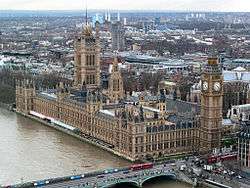
Westminster Palace
- 1 July – Tony Blair assumes the Presidency of the Council of the European Union.
- 2 July – Live 8 concerts are held.[1]
- 5 July – Riots in Edinburgh by anti-capitalist and anti-G8 protesters.
- 6 July
- The 31st G8 summit, hosted by the UK, begins at the Gleneagles Hotel in Perthshire.
- London is chosen as the host city for the 2012 Olympic Games, beating Paris in the final round of votes 54 to 50.[2]
- Edinburgh 50,000 - The Final Push concert held in Edinburgh.
- 7 July – A series of co-ordinated terrorist bombings strike London's public transport system during the morning rush hour. Three bombs exploded within fifty seconds of each other on three London Underground trains. A fourth bomb exploded on a bus an hour later in Tavistock Square. 52 civilians are killed and over 700 people were injured.[2]
- 11 July – Littlewoods sells its 119 stores across the UK to Associated British Foods in a £409,000,000 deal which will see them converted into Primark clothing stores and will mean that the Littlewoods name will vanish from high streets and shopping centres next year after 83 years, although Littlewoods will continue trading as a catalogue and an online retailer.[15]
- 12 July – Southampton Institute of Higher Education becomes a university; on 15 August, it adopts the name Southampton Solent University.
- 14 July – A two-minute silence is held across Europe at 12:00 BST to remember the victims of the London bombings.
- 15 July – Nanjing Automobile Group of China completes a takeover of bankrupt British carmaker MG Rover, and hopes to start producing cars at Longbridge from next year, with some production also taking place in China.
- 17 July – The Duchess of Cornwall is granted a Royal coat of arms by the Earl Marshal of the College of Arms.
- 18 July – Criminalisation of magic mushrooms
- 21 July – Four attempted bomb attacks in London disrupt part of the capital's public transport. Small explosions occur around midday at Shepherd's Bush, Warren Street and Oval stations on London Underground, and on a bus in Bethnal Green. However, there are no injuries.
- 22 July
- Metropolitan Police fatally shoot Jean Charles de Menezes, mistakenly believed to be a suicide bomber.[1]
- Tower of St Edmundsbury Cathedral at Bury St Edmunds completed.[16]
- 28 July
- The IRA orders an end to its armed campaign, and will focus solely on democratic politics.[17]
- Birmingham tornado of 2005: F2 tornado hits Birmingham at about 14:40. 19 people are hurt, some seriously.
- 29 July – Two of the suspects of the attempted bombings in London on 21 July are arrested in North Kensington, the fourth suspect is arrested in Rome.
August
- 11 August – British Airways grounds all flights as baggage handlers, loaders and bus drivers strike in support of 800 employees sacked by flight catering company Gate Gourmet. The strike is also affecting other airlines, causing chaos at London Heathrow Airport
- 12 August – The radical Islamic preacher Omar Bakri Mohammed is barred from returning to the UK after Home Secretary Charles Clarke cancels the indefinite leave to return Mohammed was given, after claiming asylum in 1986.
- 20 August – The Ricoh Arena, a 32,500-seat multi-purpose stadium in Coventry, is opened. Owned by the local council, Coventry City F.C. are its key tenants and it is also likely to be used as a concert venue. Japanese electrical goods manufacturer Ricoh purchased the stadium's naming rights in a multimillion-pound deal last year.[18]
- 21 August – Victory over Japan Day: A service is held at London's Cenotaph to mark the sixtieth anniversary of the end of World War II. Charles, Prince of Wales is in attendance, as are survivors of the Far East campaign.
September
- 12 September – England cricket team wins The Ashes.[19]
- 14 September – Secretary of State for Northern Ireland, Peter Hain, announces that the government no longer recognises loyalist paramilitary group the Ulster Volunteer Force's ceasefire, due to the UVF's on-going feud with the Loyalist Volunteer Force, and recent violence against the police.
- 26 September – Head of the Independent International Commission on Decommissioning, general John de Chastelain announces in a Belfast press conference that the arsenal of the Provisional Irish Republican Army has been "put beyond use", including guns, ammunition, mortars and explosives.
- 29 September
- Livingston by-election results in Jim Devine retaining the seat for Labour; though with a reduced majority in the face of a swing of 10.2% to the SNP.
- The High Court decides that Ian Huntley, serving life imprisonment for the double child murders at Soham three years ago, should serve at least forty years in prison before being considered for parole. This ruling is set to keep Huntley behind bars until at least 2042 and the age of 68.
October
- 2 October – The first parkrun, described as the Bushy Park Time Trial, takes place in Bushy Park, London.
- 5 October – Three perpetrators of the racially motivated murder of Glasgow teenager Kriss Donald, arrive in Scotland to face trial after a one-off extradition agreement negotiated with Pakistan.[20][21]
- 17–18 October – National Waterfront Museum in Swansea, designed by Wilkinson Eyre, opens.[22][23]
- 17 October – The Conservative Party begin voting on a new leader following the resignation of Michael Howard, who stepped down after being defeated at the general election in May.
- 18 October – The landmark Spinnaker Tower in Portsmouth[24] opens. At 170 metres (560 ft) it is the tallest accessible structure in the UK outside London.
November
- 1 November – Charles, Prince of Wales and Camilla, Duchess of Cornwall arrive in the United States for a state visit, their first overseas visit since their marriage.
- 5 November – Britain's quadricentennial Guy Fawkes Night is celebrated, 400 years to the day of the Gunpowder Plot.[25]
- 9 November – The Government loses a key House of Commons vote on detaining terrorism suspects for ninety days without charge, in the report stage of the Terrorism Bill.
- 13 November – Andrew Stimpson, a 25-year-old man from Scotland, is reported as the first person proven to have been "cured" of HIV.[1]
- 21 November – Alfred Anderson, one of the last surviving First World War veterans and the oldest man in Scotland, dies at the age of 109. He was also the last known survivor of the 1914 Christmas truce. There are now only approximately twenty surviving British veterans of the conflict, all over 100 years of age.[26]
- 24 November
- Pubs in England and Wales permitted to open for 24 hours for the first time.[27]
- The Safeway name disappears from Britain after 43 years with the rebranding of the last remaining store by its owner Morrisons, which took over the supermarket chain in March 2004.
- 25 November – The footballing world mourns George Best, the legendary former Manchester United and Northern Ireland player who dies from multiple organ failure in London following a seven-week illness at the age of 59. Best, an alcoholic for more than thirty years, had been admitted to hospital in early October suffering from an infection brought on by anti-rejection drugs that he had been taking since a liver transplant in 2002.
- 30 November – Quadruple killer Mark Hobson loses a High Court appeal against his trial judge's recommendation that he should never be released from prison.
December
- 6 December – David Cameron, 39-year-old MP for Witney in Oxfordshire, is elected as Leader of the Conservative Party, defeating David Davis.[28]
- 9 December – The last Routemaster buses in regular service in London run, on route 159.
- 10 December – Harold Pinter wins the Nobel Prize in Literature "who in his plays uncovers the precipice under everyday prattle and forces entry into oppression's closed rooms".[29]
- 11 December – Hertfordshire Oil Storage Terminal fire: explosions tear through Buncefield oil storage facility located near Hemel Hempstead in Hertfordshire.[30]
- 12 December – New Conservative Party leader David Cameron's hopes of becoming the next UK Prime Minister are boosted, when an Ipsos MORI opinion poll puts his party two points ahead of Labour on 37%.[31]
- 19 December – The Civil Partnership Act 2004 comes into force, granting same-sex couples similar legal rights to those of married heterosexuals. The first civil partnership in the United Kingdom under the normal application of the new rules[32] is registered at Belfast City Hall between Shannon Sickles and Grainne Close.[1] The first partnerships in Scotland are registered on 20 December and in England on 21 December.
- 22 December – Tony Blair makes a surprise visit to British forces in Iraq.
Undated
- Summer – Guinness closes its Park Royal brewery in London.[33]
- Internet access among the UK population has reached 70% (more than 40,000,000 people).
Publications
- Kazuo Ishiguro's novel Never Let Me Go
- Marina Lewycka's novel A Short History of Tractors in Ukrainian
- Paul McKenna's self-help book I Can Make You Thin
- Terry Pratchett's Discworld novel Thud!
- J. K. Rowling's novel Harry Potter and the Half-Blood Prince
- Sarah Waters ' novel The Night Watch
Births
- February – Alma Deutscher, composer, pianist and violinist
- 25 February – Noah Jupe, English actor (The Night Manager, Suburbicon, Wonder, A Quiet Place)
- 26 March – Countess Luana of Orange-Nassau, Jonkvrouwe van Amsberg
- 5 April – Bleu Landau, English actor (EastEnders)
- 16 June – Freddie Linsky, painter
- 9 September – Daisy Waite, English-Chinese actress, model and presenter
Deaths
January
- 2 January
- Bernard Barrell, composer (born 1919)
- Cyril Fletcher, comedian (born 1913)
- 3 January
- Edward Britton, trade unionist (born 1909)
- Nicholas Scott, politician (born 1933)
- 4 January – Humphrey Carpenter, writer and radio broadcaster (born 1946)
- 10 January – Erwin Hillier, cinematographer (born 1911 in Germany)
- 14 January – Conroy Maddox, painter (born 1912)
- 17 January – George P. L. Walker, geologist (born 1926)
- 18 January – Gabrielle Brune, actress (born 1912)
- 20 January – Dame Miriam Rothschild, zoologist, entomologist, and author (born 1908)
- 22 January
- Sir William Deakin, World War II hero, historian and founder of St Antony's College, Oxford (born 1913)
- Patsy Rowlands, actress (Carry On films) (born 1931)
- 28 January – Jim Capaldi, guitarist and lead singer (Traffic) (born 1944)
- 29 January – Eric Griffiths, guitarist (The Quarrymen) (born 1940)
- 30 January – Susan Bradshaw, pianist (born 1931)
- 31 January – Malcolm Hardee, comedian (accident) (born 1950)
February
- 2 February – Sir Edward Wright, mathematician (born 1906)
- 7 February – Penelope Aitken, socialite and political hostess (born 1910)
- 9 February – Kate Peyton, journalist (murdered in Somalia) (born 1965)
- 10 February – Dave Goodman, record producer (born 1951)
- 12 February – Archie Butterworth, racing car designer (born 1912)
- 15 February – David Leach, potter (born 1911)
- 16 February – Michael McCrum, academic (born 1924)
- 18 February – Brian Cookman, musician and composer (born 1946)
- 20 February – William Gordon Harris, civil engineer (born 1912)
- 24 February
- Robin Jenkins, writer (born 1912)
- Glanmor Williams, Welsh historian (born 1920)
- 25 February
- Peter Benenson, lawyer and founder of Amnesty International (born 1921)
- Phoebe Hesketh, poet (born 1909)
- 26 February – Max Faulkner, golfer (born 1916)
- 28 February – Chris Curtis, drummer (The Searchers) (born 1941)
March
- 5 March
- George Worsley Adamson, book illustrator (born 1913 in the United States)
- David Sheppard, cricketer and Bishop of Liverpool (born 1929)
- 6 March – Tommy Vance, radio and television presenter (born 1940)
- 7 March – John Box, film production designer (born 1920)
- 8 March
- Ross Benson, journalist (born 1948)
- Alice Thomas Ellis, writer (born 1932)
- 9 March – Sheila Gish, actress (born 1942)
- 11 March – Humphrey Spender, photojournalist (born 1910)
- 15 March – Audrey Callaghan, wife of former prime minister James Callaghan (born 1913)
- 16 March – Ralph Erskine, architect (born 1914)
- 20 March – Leslie Porter, businessman (born 1920)
- 21 March – Stanley Sadie, musicologist and critic (born 1930)
- 23 March – David Kossoff, actor, father of Paul Kossoff (born 1919)
- 26 March – James Callaghan, former Prime Minister (born 1912)
- 28 March –
- Dave Freeman, scriptwriter (Benny Hill, Carry On films, etc.) (born 1922)
- Dame Moura Lympany, classical pianist (born 1916)
- 31 March – Alan Bloom, horticulturalist (born 1906)
April
- 2 April – Trevor Foster, rugby union player (born 1914)
- 7 April – Cliff Allison, racing driver (born 1932)
- 11 April – John Bennett, actor (born 1928)
- 13 April – Simon Blumenfeld, writer (born 1907)
- 15 April – Margaretta Scott, actress (born 1912)
- 16 April – Kay Walsh, actress and dancer (born 1911)
- 21 April – Gwynfor Evans, politician, Plaid Cymru's first MP (born 1912)
- 22 April
- Norman Bird, actor (born 1924)
- Sir Eduardo Paolozzi, sculptor (born 1924)
- 23 April – Sir John Mills, actor (born 1908)
- 25 April – Alexander Trotman, Baron Trotman, businessman, CEO of Ford Motor Company (1993–1998) (born 1933)
- 26 April – Gordon Campbell, Baron Campbell of Croy, politician (born 1921)
- 29 April – Johnnie Stewart, TV producer, founder of Top of the Pops (born 1917)
May
- 9 May
- Charles Morrison, politician (born 1932)
- Tiny Wharton, football referee (born 1927)
- 12 May – Martin Lings, Islamic scholar (born 1909)
- 15 May – Anthony Ashley-Cooper, 11th Earl of Shaftesbury, peer (born 1977)
- 16 May
- Rees Davies, historian (born 1938)
- Albert "Smiler" Marshall, World War I veteran, last British cavalryman of the Western Front (born 1897)
- 23 May
- Derek Ratcliffe, conservationist (born 1929)
- Billy Smart Jr., circus performer (born 1934)
- 25 May – Robert Jankel, coachbuilder and vehicle designer (born 1938)
- 27 May – Fay Godwin, photographer (born 1931)
- 29 May – Sir Frederick Page, aircraft designer (born 1917)
- 31 May – John Aiken, air marshal (born 1921)
June
- 2 June – Melita Norwood, Cold War spy (born 1912)
- 3 June – Michael Billington, actor (born 1941)
- 6 June – Pamela May, ballerina and ballet teacher (born 1917 in Trinidad)
- 13 June – Jonathan Adams, actor (born 1931)
- 16 June – Gerald Davis, philatelist (born 1916)
- 17 June
- Basil Kirchin, musician and composer (born 1927)
- James A. Whyte, Church of Scotland minister and theologian (born 1920)
- 18 June – Allan Beckett, civil engineer (born 1914)
- 21 June – Geoffrey Jones, documentary maker (born 1931)
- 26 June – Richard Whiteley, television presenter and journalist (born 1943)
- 27 June
- Domino Harvey, bounty hunter (overdose) (born 1969)
- Ray Holmes, fighter pilot and hero of the Battle of Britain (born 1914)
- 30 June – Christopher Fry, playwright (born 1907)
July
- 4 July – Bryan Coleman, actor (born 1911)
- 10 July – A. J. Quinnell, writer (born 1940)
- 11 July – Gretchen Franklin, actress (born 1911)
- 12 July – John Thorley, Welsh rugby union and rugby league footballer (born 1927)
- 14 July – Dame Cicely Saunders, nurse, social worker, physician and writer (born 1918)
- 15 July – David Daiches, literary critic (born 1912)
- 17 July – Sir Edward Heath, former Prime Minister (born 1916)
- 19 July – John Tyndall, fascist who was involved in the formation of both the National Front and the British National Party (born 1934)
- 20 July
- Alfred Hayes, wrestler and wrestling announcer (born 1928)
- David Tomblin, film director (born 1930)
- 21 July
- Long John Baldry, blues singer (born 1941)
- Ian Robertson, Lord Robertson, Scottish judge (born 1912)
- 24 July
- Sir Richard Doll, epidemiologist, first person to link cigarette smoking and lung cancer (born 1912)
- Fraser McLuskey, Church of Scotland minister (born 1914)
- 26 July – Betty Astell, actress (born 1912)
- 29 July – Hermione Hammond, painter (born 1910)
August
- 4 August – Peter Cundy, World War II pilot (born 1916)
- 6 August
- Robin Cook, former Foreign Secretary (born 1946)
- Carlo Little, drummer (born 1938)
- 11 August – James Booth, actor (Zulu) (born 1927)
- 13 August – Arnold Cooke, composer (born 1906)
- 19 August – Mo Mowlam, former Secretary of State for Northern Ireland (born 1949)
- 22 August
- Geoffrey Lane, Baron Lane, judge and former Lord Chief Justice (born 1918)
- Juliet Pannett, portrait painter (born 1911)
- 24 August
- Maurice Cowling, historian (born 1926)
- Jack Slipper, Metropolitan Police detective (born 1924)
- 25 August
- Terence Morgan, actor (born 1921)
- Eleanor Warren, cellist (born 1919)
- 26 August – Gerry Fitt, Baron Fitt, politician (born 1926)
- 29 August – Sybil Marshall, writer and broadcaster (born 1913)
- 31 August
- Sir Joseph Rotblat, physicist, Nobel laureate, anti-nuclear weapons campaigner and founder of Pugwash Conferences (born 1908 in Poland)
- Michael Sheard, actor (born 1938)
September
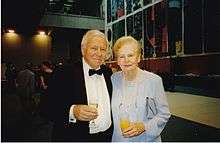
Alan Truscott with his wife Dorothy
- 3 September – R. S. R. Fitter, naturalist and author, (born 1913)
- 4 September – Alan Truscott, bridge player (born 1930)
- 7 September – L. J. K. Setright, motoring journalist (born 1931)
- 8 September – Noel Cantwell, former footballer and football manager (born 1932 in Ireland)
- 12 September – Ronald Leigh-Hunt, actor (born 1920)
- 15 September – Guy Green, filmmaker and cinematographer (born 1913)
- 18 September – Noel Mander, organ builder (born 1912)
- 19 September – John Rayner, rabbi (born 1924, Germany)
- 23 September
- Roger Brierley, actor (born 1935)
- John Knatchbull, 7th Baron Brabourne, peer and television presenter (born 1924)
- 25 September – Lionel Kochan, historian (born 1922)
- 26 September – Helen Cresswell, children's author (born 1934)
- 29 September – Patrick Caulfield, painter and printmaker (born 1936)
October
- 1 October – David Frederick Case, audiobook narrator (born 1932)
- 3 October – Ronnie Barker, actor and comedian (The Two Ronnies, Porridge, Open All Hours) (born 1929)
- 4 October – Mike Gibbins, drummer (Badfinger) (born 1949)
- 7 October – Michael Ward (mountaineer), mountaineer and surgeon (born 1925)
- 8 October
- Alfred Goldie, mathematician (born 1920)
- Janet Elizabeth Macgregor, physician and cytologist (born 1920)
- 11 October
- Jan Holden, actress (born 1931)
- Arthur Seldon, economist (born 1916)
- 14 October – Ian Breakwell, artist (born 1943)
- 16 October – Ursula Howells, actress (born 1922)
- 18 October – Johnny Haynes, former footballer (born 1934)
- 20 October – Michael Gill, television producer (born 1923)
- 25 October – Barbara Keogh, actress (born 1929)
- 26 October – Sir Richard Southwood, biologist (born 1931)
- 28 October – Peter Beet, doctor and railway preservationist (born 1937)
- 31 October – Mary Wimbush, actress (born 1924)
November
- 3 November – Geoffrey Keen, film actor (born 1916)
- 5 November
- Peter Brunt, ancient historian (born 1917)
- John Fowles, author (born 1926)
- 7 November
- Harry Thompson, producer and writer of TV comedies (born 1960)
- Steve Whatley, actor and television presenter (suicide) (born 1959)
- 9 November – Avril Angers, actress (born 1918)
- 10 November – Ted Wragg, professor of education (born 1938)
- 16 November – Donald Watson, founder of the Vegan Society (born 1910)
- 19 November – John Timpson, journalist and radio presenter (born 1928)
- 21 November – Alfred Anderson, World War I veteran and last survivor of the 1914 Christmas truce (born 1896)
- 23 November – Constance Cummings, actress (born 1910 in the United States)
- 25 November – George Best, former footballer (born 1946)
- 26 November – David Tabor, physicist (born 1913)
- 28 November – Tony Meehan, drummer (The Shadows) (born 1943)
December
- 1 December – Mary Hayley Bell, actress (born 1911)
- 2 December – Lillian Browse, art dealer (born 1906)
- 6 December – Richard Grimsdale, electrical engineer, builder of the first transistorised computer (born 1929)
- 7 December – Adrian Biddle, cinematographer (born 1952)
- 8 December – Dame Rose Heilbron, judge (born 1914)[34]
- 12 December – David Pritchard, chess player (born 1919)
- 14 December
- Gordon Duncan, bagpiper (suicide) (born 1964)
- Rodney William Whitaker, author (born 1931 in the United States)
- 15 December – Maurice Beresford, historian (born 1920)
- 16 December
- Anthony Barber, former Chancellor of the Exchequer (born 1920)
- Kenneth Bulmer, author (born 1921)
- 18 December
- Belita Jepson-Turner, Olympic skater and film actress (born 1923)
- Keith Duckworth, automotive engineer (born 1933)
- 19 December – Charles Brett, architectural historian (born 1928)
- 25 December – John Hayes, art historian (born 1929)
- 29 December – Cyril Philips, historian (born 1912)
- 31 December – Maurice Dodd, cartoonist (born 1932)
See also
References
- McGuinness, Ross (16 March 2009). "Metro". pp. 30, 31.
- Penguin Pocket on This Day. Penguin Reference Library. 2006. ISBN 0-14-102715-0.
- "2005: Belfast stab victim McCartney dies". BBC News. 31 January 2005. Archived from the original on 7 March 2008. Retrieved 13 February 2008.
- "2005: Blair is Labour's longest-serving PM". BBC News. 6 February 2005.
- "Charles and Camilla to be married". BBC News. 10 February 2005. Archived from the original on 15 February 2008. Retrieved 13 February 2008.
- "Arrests as coursing event starts". BBC News. 14 February 2005. Retrieved 27 January 2008.
- "Ban on hunting comes into force". BBC News. 18 February 2005. Archived from the original on 7 March 2008. Retrieved 13 February 2008.
- "Knighthood for Microsoft's Gates". BBC News. 2 March 2005. Retrieved 3 May 2007.
- Waugh, Paul (16 March 2005). "One million blue collar jobs lost with Labour". Evening Standard. London. Archived from the original on 12 September 2012. Retrieved 11 November 2011.
- "Prince Charles marries Camilla". BBC News. 9 April 2005. Archived from the original on 21 January 2008. Retrieved 13 February 2008.
- "Gaelic Language (Scotland) Act 2005 (s.10)". legislation.gov.uk. The National Archives. 1 June 2005. Archived from the original on 7 September 2010. Retrieved 21 January 2011.
- "Blair secures historic third term". BBC News. 5 May 2005. Archived from the original on 7 March 2008. Retrieved 13 February 2008.
- "Gaelic Language (Scotland) Act 2005". OPSI. 2005. Archived from the original on 7 September 2010. Retrieved 4 October 2010.
- "Littlewoods shops sold for £409m". BBC News. 11 July 2005. Retrieved 14 November 2010.
- "St Edmundsbury Marks End of an Era". Skyscrapernews.com. 23 July 2005. Retrieved 21 August 2010.
- "IRA declares end to armed struggle". BBC News. 28 July 2005. Archived from the original on 7 March 2008. Retrieved 13 February 2008.
- "England win the Ashes". BBC News. 12 September 2005. Archived from the original on 2 February 2008. Retrieved 13 February 2008.
- Extradited three arrive in Glasgow | Herald Scotland
- BBC News | UK | Scotland | Glasgow and West | Kriss murder timeline
- "National Waterfront Museum Swansea now open". World Architecture News.com. 17 October 2005. Retrieved 11 November 2010.
- "National Waterfront Museum". City and County of Swansea. 21 February 2007. Archived from the original on 3 October 2011. Retrieved 11 November 2010.
- Skyscraper News
- "Guy Fawkes and Bonfire Night". bonfirenight.net. Retrieved 2 October 2019.
- "Prince in tribute to war veteran". Scotland: BBC News. 21 November 2005. Retrieved 2 October 2019.
- "Pubs open 24 hours". BBC News. 24 November 2005. Archived from the original on 7 March 2008. Retrieved 13 February 2008.
- "David Cameron is new Tory leader". BBC News. 6 December 2005. Archived from the original on 7 March 2008. Retrieved 13 February 2008.
- "The Nobel Prize in Literature 2005". Retrieved 13 February 2008.
- "Massive fire at Buncefield oil depot". BBC News. 11 December 2005. Archived from the original on 7 March 2008. Retrieved 13 February 2008.
- "Voting intention in Great Britain 1976–present". Ipsos MORI. Archived from the original on 23 September 2012. Retrieved 23 April 2013.
- The first legal civil partnership took place on 5 December between Matthew Roche and Christopher Cramp at St Barnabas Hospice, Worthing, West Sussex. The statutory 15-day waiting period after giving notice was waived as Roche was suffering from a terminal illness: he died the following day. "'Gay wedding' man dies of cancer". BBC News. 6 December 2005. Retrieved 14 May 2006.
- Fabb, Debbie (23 November 2007). "Last orders for Guinness?". BBC News. Retrieved 16 September 2010.
- Morton, James (13 December 2005). "Obituary: Dame Rose Heilbron". The Guardian. Retrieved 8 April 2020.
External links
This article is issued from Wikipedia. The text is licensed under Creative Commons - Attribution - Sharealike. Additional terms may apply for the media files.
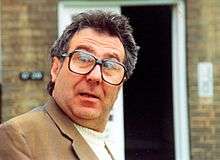
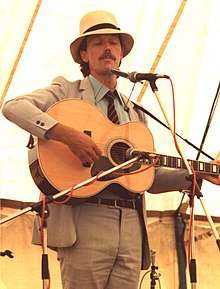
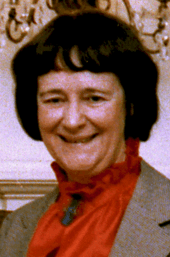
.jpg)
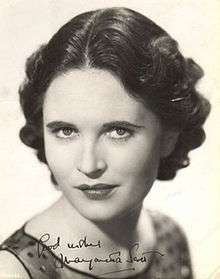
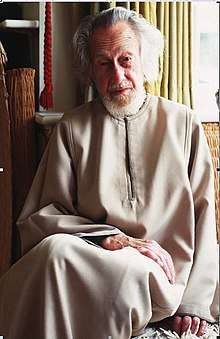


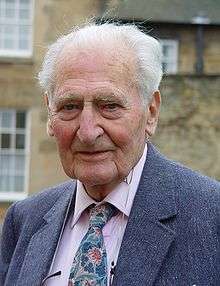
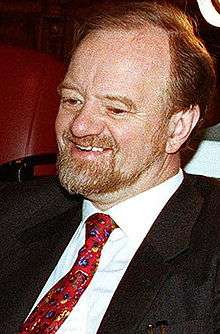
.jpg)

